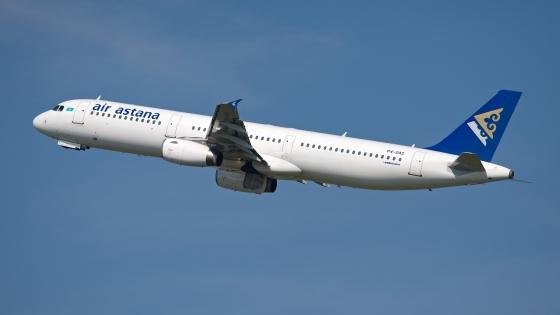As commercial air routes out of Ukraine remain suspended indefinitely, governments and airline partners around the world are working to repatriate citizens stranded in and around the war-torn nation.
Although western intelligence sources had been warning of the threat of a Russian incursion for weeks, the scale and intensity of Moscow’s invasion took many analysts by surprise and led to an immediate closure of Ukrainian airspace to civil operators. Literally overnight, airlines had to reassess evacuation plans which had relied on using Kyiv Airport or one of the country’s regional gateways.
Air Astana is one of those operating into unfamiliar airfields to safely collect stranded citizens. The Kazakh national carrier completed repatriation flights on February 28 and March 1 between Katowice in southern Poland and Almaty and Nur-Sultan.
The first sortie carried 175 passengers, with a further 120 onboard the second departure on board Airbus A320 Family jets. The flights were flown free of charge under an agreement between the airline and the Government of Kazakhstan.
Peter Foster, Air Astana president and CEO, travelled to Kyiv on the last international flight into the country on February 23 to help coordinate the repatriation effort. Foster and his colleagues are now safely out of Ukraine and shared this insight into the conditions on the ground: “The situation on the Ukrainian-Poland border is absolutely critical. I have never seen anything like this before, and hopefully will never again.”
“There are thousands and thousands of people trying to cross the border. It would have been more challenging had there not been support of the ambassador and the Embassy of Kazakhstan. We will continue with repatriation flights until we get every Kazakhstan citizen out.”
Peter Foster, president and CEO of Air Astana
In normal times Air Astana operates to Kyiv/Boryspil from Almaty and Nur-Sultan. The carrier has formally suspended its scheduled service to the Ukrainian capital until at least March 7, however this timeframe seems increasingly optimistic given the scale of the destruction and violence taking place in the country.
























